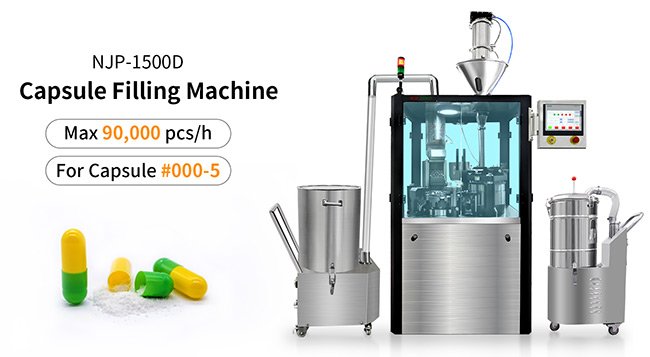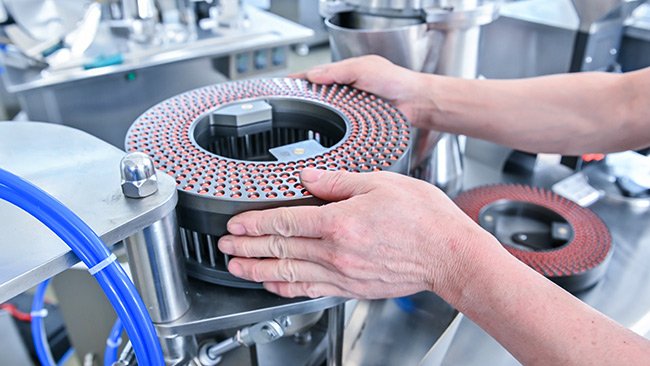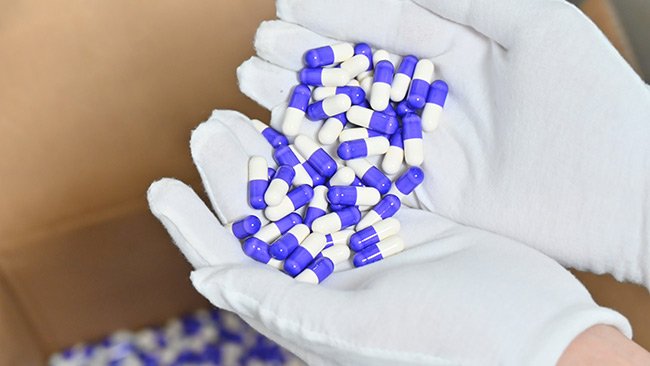Categories
New Blog
Tags
In an era where precision, speed, and regulatory compliance define success in pharmaceutical and nutraceutical manufacturing, fully automatic capsule filling machines have emerged as indispensable assets. These advanced systems are redefining production workflows, enabling manufacturers to meet the escalating demands of global markets while adhering to stringent quality standards. Unlike traditional manual or semi-automatic methods, modern capsule fillers integrate cutting-edge automation, smart controls, and hygienic design to deliver unmatched efficiency and reliability.
This article explores the transformative role of fully automatic capsule filling machines, delving into their technological innovations, operational benefits, and applications across industries. Whether you’re a pharmaceutical producer aiming to scale operations or a nutraceutical brand seeking agility in product development, understanding these systems’ capabilities is key to staying competitive.

Fully automatic capsule filling machines operate at speeds exceeding 200,000 capsules per hour, a stark contrast to labor-intensive manual processes. Their continuous workflow eliminates bottlenecks through synchronized stages:
- Capsule Alignment: Precision feeders orient empty capsules (body and cap) at rates up to 99.9% accuracy.
- Filling: Multi-piston dosing systems fill powders, pellets, or liquids with minimal spillage.
- Sealing and Ejection: Automated sealing ensures tamper-proof capsules, while rejection mechanisms discard defective units in real time.
For example, leading models like the NJP-1500 series achieve cycle times under 0.5 seconds per capsule, reducing downtime and maximizing throughput for high-volume orders.

Regulatory bodies like the FDA and EMA enforce strict guidelines on weight variation (±3.5% for most oral solids). Fully automatic machines meet—and often exceed—these standards through:
- Micro-Adjustable Dosing: Servo-driven pistons enable fill weight adjustments in increments as fine as 1mg.
- Real-Time Monitoring: Integrated load cells and sensors detect deviations, triggering automatic corrections to maintain uniformity.
In a 2023 case study, a European pharma company reduced batch rejections by 40% after upgrading to an automated system, highlighting the ROI of precision engineering.
Good Manufacturing Practice (GMP) compliance is non-negotiable in pharmaceutical production. Modern machines address this with:
- Closed-Loop Systems: Stainless steel construction and isolated filling zones prevent cross-contamination.
- CIP/SIP Capabilities: Clean-in-Place and Sterilize-in-Place features streamline sanitation between batches.
- Documentation Support: Automated logs for temperature, humidity, and batch records simplify FDA audits.
From gelatin-based capsules to vegan alternatives, these machines handle diverse materials and formulations:
- Multi-Format Tooling: Quick-change modules allow transitions between capsule sizes (e.g., 00 to 4) in under 15 minutes.
- Liquid and Powder Compatibility: Advanced pumps and augers accommodate viscous liquids, hygroscopic powders, and even combination products (e.g., tablet-in-capsule).

Industry 4.0 integration transforms capsule fillers into intelligent production hubs:
- PLC and HMI Interfaces: User-friendly touchscreens provide real-time data on output, downtime, and maintenance alerts.
- Predictive Analytics: AI algorithms analyze motor performance and wear patterns, scheduling maintenance before failures occur.
- IoT Connectivity: Remote monitoring via cloud platforms enables global teams to oversee production from any device.
While upfront costs are higher than semi-automatic models, long-term savings are substantial:
- Labor Reduction: A single automated machine replaces 8–10 manual operators, slashing payroll expenses.
- Material Optimization: Precision filling reduces overages, saving up to 15% in raw material costs annually.
- Energy Efficiency: Brushless motors and low-heat designs cut power consumption by 30% compared to older models.
- Cam-Driven Mechanisms: These replace traditional chains and gears, reducing vibration and noise while boosting speed.
- Precision Bearings: Ceramic-coated bearings extend lifespan to over 100,000 operating hours, even under high loads.
- Lubrication Systems: Self-oiling components minimize friction, ensuring smooth operation in 24/7 production environments.
- Fiber-Optic Sensors: Detect empty capsules or misaligned parts with 0.1mm accuracy, achieving defect rates below 0.01%.
- Data Logging: Batch-specific records (time, operator, settings) are encrypted and stored for 10+ years, ensuring traceability.
- Space-Saving Footprints: Modular designs fit into facilities as small as 50m², ideal for CDMO startups.
- Ergonomic Access: Retractable panels and LED-lit interiors simplify cleaning and part replacement.
- High-Potency Drugs: Containment systems protect operators during the filling of cytotoxic or hormonal compounds.

- Probiotics: Nitrogen-flushed environments prevent oxidation of live cultures during encapsulation.
- Beauty Supplements: Customizable capsule colors and prints cater to branding needs without slowing production.
Fully automatic capsule filling machines represent the pinnacle of pharmaceutical engineering, blending speed, precision, and adaptability into a single platform. As regulatory scrutiny intensifies and consumer demand for personalized medicine grows, investing in these systems is no longer optional—it’s a strategic imperative.
Looking ahead, innovations like AI-driven quality control and blockchain-based batch tracking will further elevate their role. Manufacturers who adopt these technologies today will not only streamline operations but also position themselves as leaders in the next wave of industrial advancement.